Discover Money Maze Podcast
Money Maze Podcast

Money Maze Podcast
Author: Money Maze Podcast
Subscribed: 7,522Played: 78,140Subscribe
Share
© The Money Maze Podcast 2025
Description
The world of finance has a huge impact on all of us. This show aims to explore and unravel some of the mysteries surrounding the investing business, via interviews with masters of the real life money maze.
Expect tips for mastering capital allocation, making better business decisions, strategies for taking your career to the next level, and revelatory profiles of leading industry figures.
Whether you're a current or aspiring investment professional, a regular investor, or a student exploring career options, we hope you gain some helpful insights and enjoy the shows. Thank you for listening!
Visit our website to learn more & access further content: moneymazepodcast.com
Expect tips for mastering capital allocation, making better business decisions, strategies for taking your career to the next level, and revelatory profiles of leading industry figures.
Whether you're a current or aspiring investment professional, a regular investor, or a student exploring career options, we hope you gain some helpful insights and enjoy the shows. Thank you for listening!
Visit our website to learn more & access further content: moneymazepodcast.com
224 Episodes
Reverse
In this Christmas special, we reshare our conversation with Nicky Gumbel!
Very occasionally one individual can have a disproportionately powerful impact on a collection of people, but very rarely does that person’s impact grow in time and reach, and expand beyond anyone’s expectations and for millions, be responsible for enhancing their lives.
In this episode we explore a slightly different realm: religion. Our guest, the Reverend Nicky Gumbel, talks of his own odyssey from barrister to clergyman, before widening both awareness and access to Christianity to those outside the church via the Alpha Course.
Alpha - a term which we usually employ in a very different context on the podcast - effectively rebranded and modernised Christianity for a new generation in the 1990s, with tens of thousands of courses being run by the end of the decade. The programme has now been translated into 112 different languages, and 30 million people have taken part.
In this interview he explains his own pivot to faith, how he was asked to take charge of the Alpha Course development, and in the subsequent years how its reach was extended globally.
He explains how he built it into a global brand, how charismatic leadership can be relevant to all fields, the changing relationship between faith and secularism, the role of religion for prisoner rehabilitation, as well as thoughts on morality, money and giving!
The Money Maze Podcast is kindly sponsored by Schroders, IFM Investors, World Gold Council and LSEG.
Sign up to our Newsletter | Follow us on LinkedIn | Watch on YouTube
When we interviewed Howard Marks in March of 2025, he observed, “It's the pioneers who get the arrows”. Many consider a 21st century investment pioneer to be Cathie Wood.
She embraces disruptive innovation themes early, has faced intense criticism during large drawdowns, has reshaped ETF thinking and is characterised as bold, influential, and controversial.
Cathie explains why studying under Arthur Laffer inspired her to think about private sector disruptive innovation driving growth.
She explains how multiple S curves can operate simultaneously, and how Ark fuses the macro and thematic with bottom-up conviction, along with the volatility.
She continues by discussing idea generation and Ark’s big themes including multiomic sequencing, energy storage and robotics.
She discusses risk, benchmarks, setbacks, and where to go to find work in an AI disrupted world.
The Money Maze Podcast is kindly sponsored by Schroders, IFM Investors, World Gold Council and LSEG.
Sign up to our Newsletter | Follow us on LinkedIn | Watch on YouTube
Ares is recognised as one of the leading global alternative investment managers, investing across credit, real estate, private equity and infrastructure.
Listed on the NYSE, it has over 4,000 employees, $595billion in assets* and a substantial geographical footprint.
Blair explains the high yielding Ares-managed listed vehicle, ARCC, which as a business development company (BDC) structure must distribute 90% of taxable income and averages 9% of yields*.
He discusses how being a public entity gives them a “currency” which is highly valued by employees, and also how it has helped with brand recognition as its growth accelerated.
We discuss European capital markets and the structural reliance on bank debt versus private credit (the inverse of arrangements in the US). He explains how it is changing, as well as the current headwinds and opportunities ahead.
He discusses why over 1,400 conversations take place in Europe each year, but Ares makes less than 50 loan investments in direct lending, how they are deploying over $100 billion of dry powder firmwide, and the criteria that matter for them.
He explains their focus on the middle market, their ownership of sports assets – including a $500 million preferred equity stake in Chelsea FC – and their other media and entertainment investments.
Finally, Blair responds to the question around the growth of credit secondaries and continuation vehicles, assessing the motivation behind the growth, and risks associated with the wealth management sector’s increasing allocation to this space.
The Money Maze Podcast is kindly sponsored by Schroders, IFM Investors, World Gold Council and LSEG.
Sign up to our Newsletter | Follow us on LinkedIn | Watch on YouTube
(*AUM as of 30/09/25, BDC distribution stats as at 04/11/25)
In September we held our inaugural Money Maze Allocator Summit and over the two days there was fantastic discussion, debate, insights, disagreement and a lot of learning.
It proved incredibly popular & much of that was a result of the quality of panels, moderators & topics.
Of all the conversations, one that particularly resonated with us was the chance to interview Sir Chris Hohn about two topics with which he is fantastically acquainted: investing and philanthropy.
As you will discover in this episode, he perhaps stands above most mortals with the clarity of his thinking and the extraordinary generosity and effectiveness in both disciplines.
The Money Maze Podcast is kindly sponsored by Schroders, IFM Investors, World Gold Council and LSEG.
Sign up to our Newsletter | Follow us on LinkedIn | Watch on YouTube
On 30th September and 1st October 2025 we held our inaugural Money Maze Allocator Summit (MMAS). We gathered 120+ global investors & allocators - many of whom have been previous guests - for 2 days of fascinating investment discussions.
It proved incredibly popular & much of that was a result of the quality of panels, moderators & topics!
The moderator was the brilliant Annachiara Marcandalli, Global Head of Sustainability at Cambridge Associates.
The panel was Brian Menell (Chairman and CEO, TechMet), Per Lekander (CEO, Clean Energy Transition), Bill Orum (Partner, Capricorn Investment Group) & Kristin Eshak Weldon (Senior Managing Director, CCI).
The climatic changes challenging our world should not be in doubt. The responses, the consequences and the investment opportunities and risks are profound.
The panel encompasses rare earths, electrification, power sources, uses and solutions, the EV charge, the continued role of hydrocarbons & much more…
--
MMAS - More Info & 2026 Event Registration - Please note that the 6th/7th October date indicated on the webpage remains provisional (as of 30/10/25).
The Money Maze Podcast is kindly sponsored by Schroders, IFM Investors, World Gold Council and LSEG.
Founded in 1971 as the Rothschild Investment Trust, RIT Capital Partners PLC, continues today with a mandate to preserve and grow capital across generations through a multi-asset, global and unconstrained strategy.
As one of the UK’s largest investment trusts, with total assets of approximately £4bn (over 20% of which is owned by family members), RIT targets CPI + 3% as one of its benchmarks, aiming to meet those real return objectives for long-term wealth preservation.
In this conversation Maggie explains the asset allocation, where private assets represent 30% of the assets, public equities at 40%, and uncorrelated nearly 20%.
She discusses their approach to the asset classes, the network of partners that offers them unusual access, why Hedge Funds play an important role and how they look at currency exposures and hedging and to whom such an approach makes sense.
Finally, she assesses the 30% discount to NAV, which although part of a wider UK problem, might seem unusually compelling, and the actions they are taking to try to close the gap.
NOTE - This podcast was recorded in September 2025, and therefore all RIT data is provided as at 31/08/2025. Statistics cited in this description by Simon are all approximations and for general information purposes only. Please find RIT’s regulatory disclosures here. Money Maze Podcast disclaimer here.
The Money Maze Podcast is kindly sponsored by Schroders, IFM Investors, World Gold Council and LSEG.
Sign up to our Newsletter | Follow us on LinkedIn | Watch on YouTube
It’s not every guest who would admit in their new book, with brutal honesty, “I’ve been vilified, satirised, protested against- a hate figure both on left and right.”
But it is also uncommon, if not without precedent, for someone who has led their political party, been deputy Prime Minister for 5 years, to then re-invent themselves, chameleon-like, move to silicon valley and join the senior ranks of one of the world’s most successful technology companies, Meta.
Before he discusses his new book “How to Save the Internet - The Threat to Global Connection in the Age of AI and Political Conflict,” Nick explores power and politics, ambition and insights.
He speaks about content moderation and removing Trump from Facebook, the balkanisation of the Internet, and why AI might not be the existential arrival feared by some.
He laments Europe’s failings, US tech dominance, why China is an immense technology force, and what is needed to achieve cohesion amongst the democratic powers in developing a tech roadmap.
The Money Maze Podcast is kindly sponsored by Schroders, IFM Investors, World Gold Council and LSEG.
Sign up to our Newsletter | Follow us on LinkedIn | Watch on YouTube
Today’s episode started as “Good Investor, Poor Communicator”, but as we researched this topic ahead of the conversation it became a bigger theme than simply, why at times, great investment managers are often less effective communicators.
In this conversation, we explore how communication is changing; first in the asset management community as firms adapt, and acknowledge the importance of their brand, through to the newer ways they seek to communicate, explain and position their enterprises.
Jen then expands into other incredibly important areas for young and old. In an A.I integrated world why the power of the spoken word assumes greater importance.
The tension of “literacy vs oracy”, how to think about “nailing the narrative”, “battle the sea of sameness”, “approach people in the hallway”, “navigate a tough capital-raising environment”, deal with “glass ceilings” and maintain “humility”.
And, of course, the two most important words in business…
The Money Maze Podcast is kindly sponsored by Schroders, IFM Investors, World Gold Council and LSEG.
Sign up to our Newsletter | Follow us on LinkedIn | Watch on YouTube
When someone speaks with a deep of understanding of the banking and finance systems, is widely respected, and then expresses a strong but debatable view, about a developing asset class, we think it’s important to hear that voice and to challenge and distil its key messages.
So in this episode we welcome back a former guest who appeared on the MMP in March 2023 during the banking storm, during with Silicon Valley Bank and then Credit Suisse. His conclusion was unequivocally that this was no repeat of the 2008 GFC, as has been proven.
In addressing his recent report from Oliver Wyman, titled “private credit is reshaping wealth portfolios”, we wanted to challenge him on several issues, including; Is it that innocuous? Is this a trend which will serve big private asset firms at the expense of individuals? How about bad times and souring loans? Does the loss of liquidity matter? Are we swapping risks from the regulated banking sector to the unregulated world of the giant private market firms?
And so Huw and I face off in a discussion on the risks and opportunities that are the hallmarks of this fast-growing slice of the investing world.
The Money Maze Podcast is kindly sponsored by Schroders, IFM Investors, World Gold Council and LSEG.
Sign up to our Newsletter | Follow us on LinkedIn | Watch on YouTube
Enjoy a variety of career tips & life lessons from finance leaders in this compilation special.
This episode brings together some of the most insightful lessons and perspectives we’ve gleaned from past guests, covering everything from life wisdom to industry-specific strategies.
You’ll hear from an extraordinary lineup, including Peter Frankopan, Ron Biscardi, Luba Nikulina, and James Anderson.
But that’s not all—we’ve also included insights from Michael Manning, Stephen Roberts, Marcie Frost, Mark Boggett, and Chrsitina McGuire. We hope you find this useful!
The Money Maze Podcast is kindly sponsored by Schroders, IFM Investors, World Gold Council and LSEG.
Sign up to our Newsletter | Follow us on LinkedIn | Watch on YouTube
Has the demise of London's leading financial services been "greatly exaggerated", and does the underlying evidence tell a very different story?
In this interview, held at Mansion House in the historic City of London financial district, the Right Honourable Alastair King (696th Lord Mayor of the City of London) explains his view that the UK enjoys an unrivalled position, untouched by other European capitals.
He explains London and the wider UK “moat”, and why it exhibits persistency and resilience. Perhaps the most unexpected statistic is the significant growth in employment numbers in the City since Brexit.
He discusses the importance of the Mansion House Reforms and the £75bn of investment by 2030, headed into private assets. He discusses why we must recognise that we need to take more risk, judiciously but emphatically (and this is directed at both public and private markets).
Lord Alastair then touches on the lessons we can learn from Canada and Australia and his current priorities. Finally, he explains why we need to get on planes/trains in order to trumpet the UK and drive new business opportunities.
The Money Maze Podcast is kindly sponsored by Schroders, IFM Investors, World Gold Council and LSEG.
Sign up to our Newsletter | Follow us on LinkedIn | Watch on YouTube
Economist John Stuart Mill observed that “landlords grow rich in their sleep". Yet, as evidenced by the failure over the years of many real estate businesses, success is also highly dependent on entry price, debt levels and execution.
Brookfield, based in Toronto, has developed over 120 years into one of the world’s largest alternative investment management companies, with over $1 trillion of assets under management.
It is also one of the world’s largest real estate operators, and in this conversation, Brian starts by tackling the questions of “how you buy well” and “what goes wrong”?
He then discusses the most significant geographical opportunities, from hospitality in Spain to student accommodation in the UK.
He elaborates on the themes that unify the world of real estate, the blurring of lines between real estate and infrastructure and the “chronic shortage of housing” that is common to the US, Australia, the UK and Korea.
The Money Maze Podcast is kindly sponsored by Schroders, IFM Investors, World Gold Council and LSEG.
Sign up to our Newsletter | Follow us on LinkedIn | Watch on YouTube
Peter Frankopan is a Professor of Global History at Oxford, and author of The Silk Roads.
His work has been both profound and enduring, with the book being translated into more than 45 languages and selling nearly 3 million copies worldwide. The updated version has just been published.
In this conversation, Peter reflects on the potent forces at work both within and outside of Asia.
He assesses the changing world order and discusses if the complexity of interplays which may appear uncomfortable to us, are actually less violent and dramatic when viewed through a historic lens.
From China to Iran, India to the Baltics, this globe-trotting conversation discusses, hot-spots, malevolent actors, animosities, frictions and fallacies.
They also shine a light on his favourite cocktail and top sporting event!
The Money Maze Podcast is kindly sponsored by Schroders, IFM Investors, World Gold Council and LSEG.
Sign up to our Newsletter | Follow us on LinkedIn | Watch on YouTube
If you are an asset allocator, what is the most effective way to widen your lens on identifying potential investment managers? And if you are an investment manager, how can you be more effective in meeting some of those key allocators who might transform your business?
In April 2020, Ron Biscardi launched iConnections, whose platform allows managers to share fund information with allocators.
Ron started iConnections as a small virtual events platform during COVID-19, with 'no money, no employees, no software and no clients'. In just five years, it's grown into the world's largest cap intro platform (facilitating 35,000+ meetings, so far!).
Ron explains how his background in engineering and then capital introduction led him to found the business.
He explains why they built the technology, rather than buying it, and discusses the enduring attraction of conferences. Plus he also covers why data is the great enabler to help attendees maximise their productivity.
Finally, he discusses why conferences such as iConnections Global Alts (Miami) is so successful, and how gathering intelligence, meeting your peers and building your brand can follow.
The Money Maze Podcast is kindly sponsored by Schroders, IFM Investors, World Gold Council and LSEG.
Sign up to our Newsletter | Follow us on LinkedIn | Watch on YouTube
Today we welcome one of the Middle East’s most successful angel investors and venture capitalists, listed in 'FORBES 100 Most Powerful Business Women 2025'.
Noor Sweid explains her journey, from early career in management consultancy and relocating to Dubai, followed by growing and listing a business on the London Stock Exchange and NASDAQ Dubai in 2008 (Depa), through to establishing her VC business, Global Ventures, in 2018.
She sets the scene for the investing dynamics of MENA (Middle East North Africa), where the domestic market comprises 450 million people, half of whom are below 30 years old.
Noor explains both the geographic and industry opportunities, why she established Global Ventures, and the priorities in their investment process.
From fintech, agritech, consumer goods and solving the most pressing medical challenges, she details their approach, selection criteria, and the characteristics they look for.
She explains how they prioritise, how much they become involved in their investee companies, what they look for in “winning entrepreneurs” and why they believe their success rate can be higher than typical industry norms.
Subscribe to stay up to date with our range of fascinating interviews, featuring some of the biggest names in global finance and business!
The Money Maze Podcast is kindly sponsored by Schroders, IFM Investors, World Gold Council and LSEG.
Sign up to our Newsletter | Follow us on LinkedIn | Watch on YouTube
From the 1950s onwards, the foundations of investment consulting were laid, as pension funds and institutional investors sought professional guidance on asset allocation and portfolio management.
This was enhanced in the 1960s & 70s by the introduction of Modern Portfolio Theory by Harry Markowitz and the Capital Asset Pricing Model (CAPM) by William Sharpe.
Today, the investment consulting industry has become a vast cog in the investing machinery, increasingly extending its reach from institutional through to individual investors.
In this interview, Michael Manning, CEO of NEPC, with nearly $2 trillion under advice, sits at the epicenter of these developments.
We learn how the world of consulting has developed, the reasons behind its growth, how it has adapted, and its move into the individual market.
Michael then discusses the investment terrain. Is the US peaking relatively, and what might that mean? How to assess passive versus active? Is private equity due to disappoint? And how to assess the risk/returns of private debt, infrastructure and real estate.
The Money Maze Podcast is kindly sponsored by Schroders, IFM Investors, World Gold Council and LSEG.
Sign up to our Newsletter | Follow us on LinkedIn | Watch on YouTube
Through direct, entertaining & insightful interviews with masters of the real life money maze, we hope to learn about different approaches to allocating capital, making business decisions and navigating the pitfalls that line the paths to prosperity.
Each episode, with invite leading figures from the investment management and finance sector onto the show, who share their investment insights and career tips with our community. We're driven by a commitment to opening up the industry, which can often be shrouded in the fog of jargon and apparent complexity.
To provide listeners with a wider perspective, we also occasionally feature guests from the arts or wider business world.
The interviews is available completely free on all major podcast apps, on YouTube and via www.moneymazepodcast.com
If you have any questions or guest ideas, feel free to email us at info@moneymazepodcast.com.
Sign up to our newsletter for more in-depth insights | Follow us on LinkedIn
The Money Maze Podcast is kindly sponsored by Schroders, World Gold Council, IFM Investors and LSEG.
Chris Wood, former guest and highly respected global strategist, recently made a bold prediction, namely that the US stock market has reached its all-time relative peak, similar to Japan in 1989.
His recent commentaries include one describing Trump’s “Liberation Day” as “Impoverishment Day” and that Trump is the “Bull in the China Shop”.
In this conversation, Chris gives his take on whether US equities are peaking, or just pausing.
Alongside sharing some thoughts on US equities, Chris also analyses the dollar, the bitcoin/gold dilemma, EM fixed income, private equity, and private debt.
The Money Maze Podcast is kindly sponsored by Schroders, IFM Investors, World Gold Council and LSEG.
Sign up to our Newsletter | Follow us on LinkedIn | Watch on YouTube
Economic theory suggests that when competition decreases, remaining firms may have more market power, which can lead to increased opportunities to expand, innovate, or capture a larger market share.
Does that analogy apply to the world of shorting? And even if you are considered one of the best in the business, can you stay afloat with a rising tide of bullishness and asset inflation?
To discuss what’s changed and where might the opportunities lie, we welcome back Carson Block, who first appeared in September 2021. He discusses sourcing ideas and the warning signs and characteristics of companies they typically like to short along with examples of companies that meet their criteria.
He discusses if AI can assist in screening for pattern recognition in potential candidates. He then reflects on the resilience needed to survive bull markets and hostile adversaries, and just as short-sellers leave the field, what may lie ahead! Recorded January 2025.
The Money Maze Podcast is kindly sponsored by Schroders, IFM Investors, World Gold Council and LSEG.
Sign up to our Newsletter | Follow us on LinkedIn | Watch on YouTube
Some of our conversations are deliberately different, and the man I interview here has cost me a lot of money! I also consider him a friend and somebody whose perspective I have valued.
It could be said that Neil Woodford, CBE, has had a career of two halves, the first of which encompassed extraordinary investment success at Invesco Perpetual and then at Woodford Investment Management (2014-2019).
At its peak, Woodford’s business managed £15bn and was backed by Hargreaves Lansdowne and St. James’s Place. Its clients included Kent County Council’s pension fund, a range of wealth management firms and 300,000+ retail investors.
Yet in 2019 the fund was suspended and then liquidated, following a shift in asset allocation from blue-chip public equities to illiquid, unlisted companies (he denies this was the cause of the collapse in this discussion). In the run up to the collapse, he experienced approximately £7bn of outflows.
Using an investment lens, here we try to examine and understand what went right, what went wrong and now what may lie ahead.
Neil remains under investigation by the UK Financial Conduct Authority at the time of this interview (March 2025).
The Money Maze Podcast is kindly sponsored by Schroders, World Gold Council, LSEG and IFM Investors.
Sign up to our Newsletter | Follow us on LinkedIn | Watch on YouTube







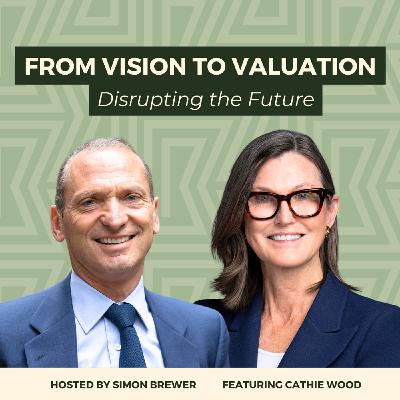



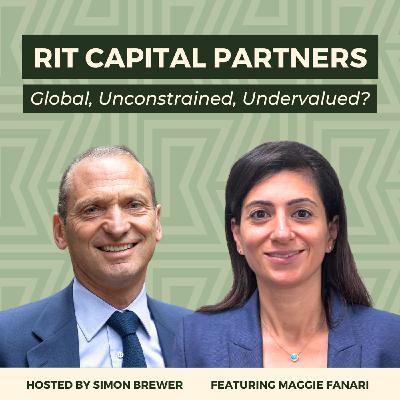






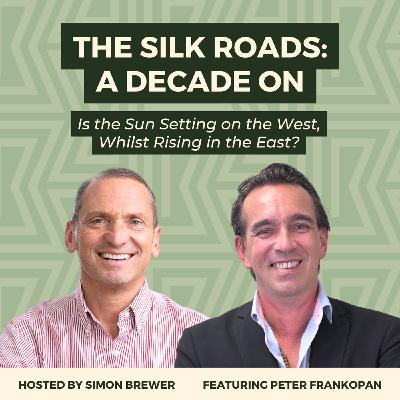


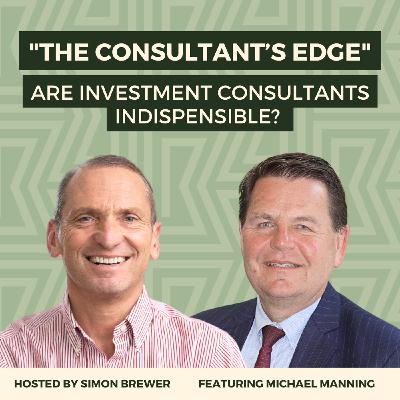
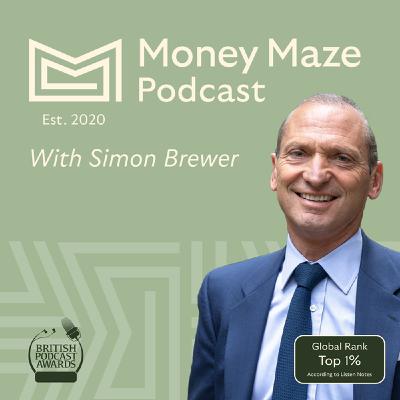

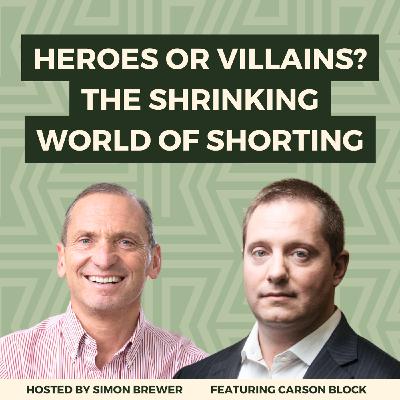
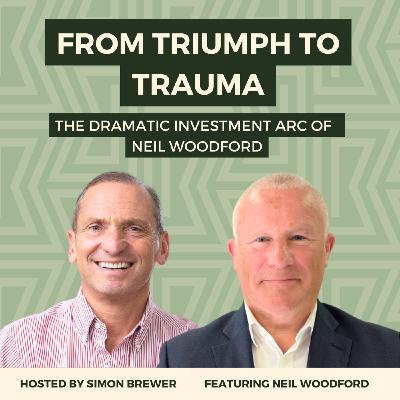



Way too cosy an interview; if you can't ask more insightful questions it just turns into an interview of your friends. Great for you but not very insightful for us!